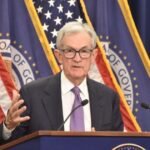As presidential election results from all legislative assemblies were announced, Pakistan Tehreek-e-Insaf (PTI)-backed Sunni Ittehad Council (SIC) candidate Mahmood Khan Achakzai said on Saturday that the country had witnessed a “first of its kind poll” for the coveted post without “horse-trading” in which he competed against Asif Ali Zardari, a joint candidate of the ruling coalition.
Accepting his defeat in the presidential contest against Pakistan Peoples Party (PPP) nominee Zardari, Achakzai told reporters that it was an unusual election in which “horse-trading” was not seen.
He congratulated Zardari on his second term as Pakistan’s president, describing it as the “beginning of a new era” due to the “rare” poll held in a good context.
He also congratulated the PTI-backed MPs for voting in his favor; however, he especially criticized the Jamiat Ulema-e-Islam-Fazl (JUI-F) and the National Party (NP) for failing to vote despite expressing their intention to join the opposition.
“All 90 MPs from Khyber Pakhtunkhwa (KP) voted for me. The PTI lawmakers cast their ballots for me in front of cameras. “A good trend has been established […] the next issues will be discussed in parliament,” stated Achakzai.
He chastised Dr. Abdul Malik for committing to vote for him and then reversing.
“We must respect the choice of the nation, which voted for one party. We [political parties] must also assist one another,” the politician stated, although he was opposed to taking legislative disputes to court.
At the end of the crucial electoral event, Achakzai asked parties to collaborate in the national interest during difficult times.
To a question about the JUI-F’s decision not to participate in the presidential election, Achakzai responded that Maulana Fazlur Rehman appears to have fallen asleep.
The PTI-SIC candidate stated that Imran Khan, the detained PTI founder, had been his buddy since the inception of the Pakistan Democratic Movement (PDM). He explained that 36 parties, including the PTI, had assembled and discussed the “charter of democracy”.







